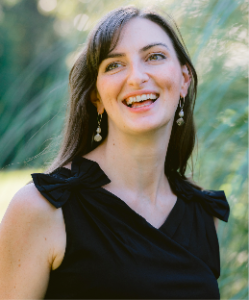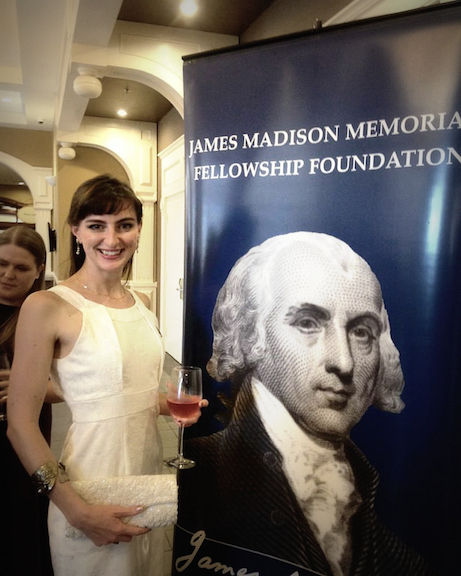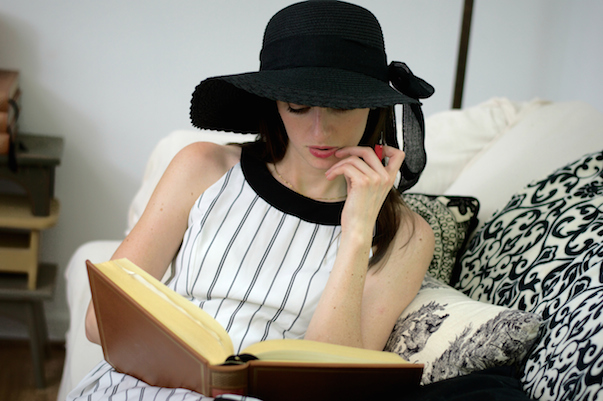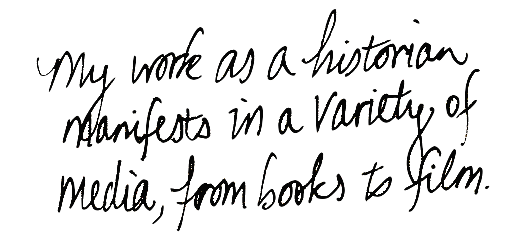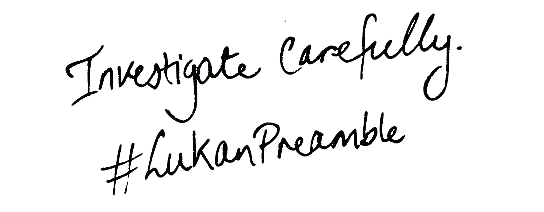My first installment in the Flashback Friday Interviews series features Kellyanne Conway, who was recently appointed Counselor to the President. It’s now been more than six years since I met and interviewed this skillful pollster (also a mother of four), who last year became the first woman in history to run a victorious American presidential campaign. Conway provided such insightful conversation that I ended up using content from one interview in several subsequent articles. It’s fitting that today also happens to be Mrs. Conway’s birthday!
I cringe at some of my old writing, but enjoy some vintage Kellyanne in this flashback.
Alabama Policy Institute Dinner features Fred Barnes, Kellyanne Conway, and Stephen Moore
Kellyanne Conway, Stephen Moore and Fred Barnes offer midterm election review and comment at Alabama Policy Institute Annual Dinner.
The Washington Times Communities
Saturday, November 20, 2010
BIRMINGHAM, Ala., Nov. 11, 2010 – The conservative outcome of the midterm elections was a reigning topic of the Alabama Policy Institute’s Annual Dinner, which took place at the Cahaba Grand Conference center. Established in 1989, the API is “a non-partisan, non-profit research and education organization dedicated to the preservation of free markets, limited government and strong families” and drew an audience of 1,100 to its annual dinner.

Gary Palmer, who was moderating the panel, is now a U.S. Representative from Alabama.
Alabama’s newly elected governor and lieutenant governor, Robert Bentley and Kay Ivey, attended the event. Kellyanne Conway, Stephen Moore and Fred Barnes formed the panel of guest speakers, all of whom have spoken at previous API events.
“The panelists are all people whose opinions and insights are highly regarded,” Gary Palmer, API president and panel moderator told me via e-mail. “In addition, they are all individuals that I have known for many years and that have also known each other for many years. I think the familiarity helps account for the excellent chemistry of the panel.”
Stephen Moore, economics editor and member of The Wall Street Journal editorial board, announced that evening that he predicted exactly a year before that Republicans would win the House of Representatives in the midterm election.
Indeed, the midterm Republican gains in the House are the largest since the 1940s, and one-third of those incoming Republicans are freshmen.
The transfer of power was just as significant at the state level — and the 2010 election results in Alabama were symbolic to say the least. On Nov. 2, Alabama gained both a governor and lieutenant governor from the Republican Party as well as a Republican legislature for the first time in 136 years. It was one of the most dramatic of many historic shifts in state legislatures across the country.
“I never would have thought that as Alabama goes, so goes Wisconsin!” said Fred Barnes, host of “The Beltway Boys” on Fox News Channel and executive editor of The Weekly Standard, referring to the conservative victories in Wisconsin’s gubernatorial, state legislature, one U.S. Senate and two congressional races.
What led to this conservative surge?
Last month President Obama said at a Democratic fundraiser, “Part of the reason that our politics seems so tough right now, and facts and science and argument do not seem to be winning the day all the time, is because we’re hard-wired not to always think clearly when we’re scared, and the country is scared.”
But according to the API panelists, nothing could be further from the truth. Kellyanne Conway, president and CEO of the polling company inc./WomanTrend, said that “the crimson tide” swept across the nation from Alabama because the “average voter this year was more financially sophisticated and politically savvy.”
Voters were informed, not ravenously angry and terrified.
Conway, a conservative mother of four, noted that this was a “year of the woman activist and voter” and observed that Democrats particularly made a big mistake about women, who are responsible for two out of every three dollars spent on health care in the country.
“Women rejected Obama’s health care policy,” Conway concluded, adding that health care should be allowed to be purchased across state lines.
In light of the 2010 election results, what will be next for the country?
A central dispute will be Obama’s attitude toward the new Congress, which he apparently believes was elected on fear and ignorance rather than a serious response to his agenda.
“Can Barack Obama learn from this election?” Moore asked. “I’m not convinced that Barack Obama is capable of moving to the center.”
Although the Republican majority in the House and stronger minority in the Senate can help set the tone in Washington, Barnes warned that “you can’t govern from Capitol Hill,” a concept he mentioned in an earlier article.
“We can’t do the sort of tax reforms conservatives would like until we have a conservative president,” he admitted, while reminding us that states now have a lot of power in affecting policy — especially health-care policy — nationwide.
Moore also said he expects to see states reassert their power and authority. Conway echoed this in a later interview saying, “For a long time, federalists like me have believed that the action is in the states, and [that] we should be a bottom-up, not a top-down, movement.”
But a reflection on the outcome of the 2010 election isn’t complete without pondering the next curious scenario: election 2012.
When moderator and API President Gary Palmer asked the panelists for their take on potential 2012 presidential candidates, Moore brought up the names Chris Christie, Paul Ryan and Mike Pence. “Moore forgot Sarah Palin!” exclaimed Barnes, who said that Palin is the most solidly conservative possibility with a tremendous following.
While he considered Jim DeMint to also be a good potential candidate, Barnes said, “Never underestimate Sarah Palin.”
“Please don’t rush to find a nominee,” advised Conway. “Come up with a job description for president, and force these job aspirants to audition for the role.”
She encouraged Republicans to have a competitive primary and not get lost in the superficial notion of win-ability.
“Don’t ask who can win. Ask who can lead.”
International Women’s Day and the post-feminist era
Colloquialism aside, there are no such things as “women’s rights”. There are only human rights.
The Washington Times Communities
Friday, March 11, 2011
March 8th was International Women’s Day. In fact, this month marks the 100th anniversary of the international feminist celebration initiated by Clara Zetkin, a socialist German politician who took the last name of her Russian lover, eventually married a fellow eighteen years younger than herself and became an executive member of the Comintern.
Well, I don’t suppose many of us women have much in common with her. What does the feminist legacy of Zetkin and others mean to females in my generation?
Throughout my girlhood, I viewed feminism as a sort of lingering ball and chain more than a movement to be proud of. It was something that commanded girls to be in perpetual competition with men whether we wanted to be or not. The presence of feminism was like a ghostly matriarch frowning over me with disappointment in even the subtlest matters.
When I casually wore my favorite denim skirt or floral print dress, I encountered interrogation from observers: “Why do you like to wear 18th century clothes?” “What cult are you a member of?” “Why do you always wear dresses?”
Those are real questions – I didn’t make any of them up. What I began to realize, much to my distaste, is that dresses with hemlines past the knees are subliminally perceived as prison garbs from days gone by. Liberal feminism fought to emancipate women from dresses, from kitchens, from homes and from babies. To embrace any of those things is to disrespect the goddesses of women’s rights.
But colloquialism aside, there are no such things as “women’s rights”. There are only human rights.
Abigail Adams promoted this concept in her famous March 31, 1776 letter to her husband:
They have time and warning given them to see the Evil and shun it. — I long to hear that you have declared an independency — and by the way in the new Code of Laws which I suppose it will be necessary for you to make I desire you would Remember the Ladies, and be more generous and favourable to them than your ancestors. Do not put such unlimited power into the hands of the Husbands. Remember all Men would be tyrants if they could.
If perticuliar care and attention is not paid to the Laidies we are determined to foment a Rebelion, and will not hold ourselves bound by any Laws in which we have no voice, or Representation. That your Sex are Naturally Tyrannical is a Truth so thoroughly established as to admit of no dispute, but such of you as wish to be happy willingly give up the harsh title of Master for the more tender and endearing one of Friend. Why then, not put it out of the power of the vicious and the Lawless to use us with cruelty and indignity with impunity.
Men of Sense in all Ages abhor those customs which treat us only as the vassals of your Sex. Regard us then as Beings placed by providence under your protection and in immitation of the Supreem Being make use of that power only for our happiness.
Well, our second first lady warned us. If women didn’t have basic civil rights in the first place, things might foment out of control one day – which is exactly what happened.
Barbara Kay summed up the matter in two brilliant sentences: “The feminist revolution began as a necessary reform movement, but unfortunately evolved into a marxism-imbued, revolutionary one. Second-wave feminism’s focus soon shifted from women’s equal rights (which are limited to those defined by law) to women’s interests (which are limitless), as perceived through a victim’s lens.”
As Clare Boothe Luce is said to have quipped, “No good deed goes unpunished.” The quest to get women treated as equally human in the face of government was too good for parasitic ideologues to let alone. Women have since been victimized and exploited for the sake of advancing agendas they otherwise wouldn’t be interested in.
Liberal feminists have made it their business to dictate what women want, apparently oblivious to the contradictions they demand us to accept. We are supposed to be rightfully disgusted by female genital mutilation abroad, yet see nothing wrong with desecrating the female reproductive system internally.
We are supposed to want to see women be “nurtured and protected”, but then demand that sexuality be degraded to a touring freak show in schools. We are supposed to glorify our gender, yet feel ashamed and oppressed when we like wearing long skirts or want more than two children. We are supposed to desire to prove we can fight in combat alongside the boys, but then cry for lower physical standards when it turns out we’re not built like them.
We are supposed to be rallying in support of Planned Parenthood, the nation’s largest abortion provider, because it claims to be an organization that is vital to women’s health. However, according to the mission statement seen on PPFA’s recent tax filing, it is – in the words of liberal commentator Kirsten Powers – “a population-control organization”:
“THE PURPOSE OF THE FEDERATION IS:
(A) TO PROVIDE LEADERSHIP:
– IN MAKING EFFECTIVE MEANS OF VOLUNTARY FERTILITY REGULATION, INCLUDING CONTRACEPTION, ABORTION, STERILIZATION, AND INFERTILITY SERVICES, AVAILABLE AND FULLY ACCESSIBLE TO ALL AS A CENTRAL ELEMENT TO REPRODUCTIVE HEALTHCARE:
– IN ACHIEVING, THROUGH INFORMED INDIVIDUAL CHOICE, A U.S. POPULATION OF STABLE SIZE IN AN OPTIMUM ENVIRONMENT; – IN STIMULATING AND SPONSORING RELEVANT BIOMEDICAL, SOCIO-ECONOMIC AND DEMOGRAPHIC RESEARCH;
IN DEVELOPING APPROPRIATE INFORMATION, EDUCATION AND TRAINING PROGRAMS.
(B) TO SUPPORT AND ASSIST EFFORTS TO ACHIEVE SIMILAR GOALS IN THE UNITED STATES AND THROUGHOUT THE WORLD.”
When I interviewed Kellyanne Conway about the midterm elections last year, I brought up the point that in the House of Representatives, the number of pro-life women increased by 60% while pro-choice women diminished by 16%. There are also more pro-life women governors than abortion rights women governors now.
“It turns on its head what has been the conventional – albeit false – wisdom that for a woman to prevail in politics, the cost of admission is that she be pro-choice and abortion,” said Conway. “That simply is not true. As America’s voting population has become more pro-life and more conservative generally…that’s being reflected now in the elected officials that they elevate.”
In response, the liberal feminist establishment shamelessly infers that conservative women like Sarah Palin and Michele Bachmann aren’t even “real women”. Yeah, because everybody knows that real women want to do things like terminate the life of their offspring and wrestle with men.
Just as leftists try to take ownership of race (Jesse Jackson said that a black congressman from Alabama who voted against the health care bill isn’t a real black man), they try to take ownership of gender. Women who show themselves to be genuinely independent individuals are suddenly excommunicated (oh, the irony!).
Can anyone really blame women (particularly young women) for being disillusioned with leftist feminism?
Women are not oppressed or failing in the West, and we have more opportunity than we know what to do with. We are not victims. Most of us aren’t fretting over how many women CEOs or engineers exist when we know there are women in some countries who would be thankful just to be able to read.
Americans and the Royal Wedding – why do we care?
What is it about the new Duke and Duchess of Cambridge that made America take an interest in her ex-monarchy?
The Washington Times Communities
Tuesday, May 24, 2011
OHATCHEE, Al. May 24, 2011 — As the new Duke and Duchess of Cambridge have just returned from renting a private island in the Seychelles for their honeymoon (and finally met President “smart alec” Obama), the Royal Wedding news has cooled somewhat.

AMERICA’S EX-MONARCHY: We don’t want it for ourselves anymore, but tend to enjoy watching the royal family from the distance. The Royal Wedding at Buckingham Palace on 29th April 2011: The Bride and Groom, TRH The Duke and Duchess of Cambridge in the centre with attendants, (clockwise from bottom right) The Hon. Margarita Armstrong-Jones, Miss Eliza Lopes, Miss Grace van Cutsem, Lady Louise Windsor, Master Tom Pettifer, Master William Lowther-Pinkerton; taken in the Throne Room by Hugo Burnand. flickr.com/BritishMonarchy.
But hither and yon, bits and pieces of the story still appear, and I can’t manage to go without commenting on the famous royal matrimony of my generation now, can I?
I’ve never been a particularly romantic girl. While my friends wanted to play “house” and “princess” games, I was usually painting watercolor landscapes or cataloguing my personal zoo of earthworms, pond snails and water bugs. That being said, I never thought much about weddings, royal or otherwise.
But last month, I noticed something odd. While researching Middle East politics – or 2012 U.S. election rumors – or listening to a podcast of wise old scientists chatting about intelligent design – suddenly some headline about Prince William’s bride would show up and I just had to click it.
I don’t know why – it’s as if suddenly I was acting like a girl or something.
Yet, I have a reasonable excuse – it just wouldn’t be right for a history major working in media to be totally clueless about our good old ally’s future queen (and her absurdly perfect hair, smile, figure, wardrobe…).
Would it?
I wasn’t among the nearly 23 million Americans who were up before dawn to watch the Royal Wedding proceedings (here is managing editor Jacquie Kubin’s minute by minute run down of it if you missed it). I’ll confess that my sister Rachel and I toyed with the idea of getting up at five in the morning to get a glimpse of the ceremony of the century, just so we could say we did it.
However, a tumultuous tornado system happened to knock the electricity out of our home, just in time for the event. Oh well…
When our grandparents brought over some hot breakfast that morning, Grandmomma informed us of the Royal Wedding details we were deprived of (Granddaddy, needless to say, thought all the hoopla was ridiculous).
“It’s totally embarrassing that Americans cared about that. We fought a Revolution against the royal family,” said Ann Coulter, commenting on Americans’ fascination with the Royal Wedding and Princess Diana through the years.
Coulter’s assessment is understandable (I’ll note that she said she liked – albeit felt sorry for – Kate Middleton), and I’m inclined at first thought to agree with her.
But now I want to determine if that’s a fair enough assessment.
Allow me to sort through a few ideas about why Prince William’s marriage to Catherine Middleton caught some Americans’ fancy.
Besides the picturesque handsome prince and beautiful princess iconism, what was it about the event that got America interested in snooping on her ex-monarchy?
1. Fashion is one part of it, to state the obvious. Undoubtedly American women’s fascination with the Royal Wedding had some basis in fashion. Traditionally – perhaps ironically – the New World has apparently always been concerned about catching up (or down) with what the Old World is doing, whether it be hairstyles or socialized medicine. (I’m not sure I’ll ever understand fascination with the latter.)
When the Portuguese monarchy fled to Brazil to escape from Napoleon, the society women of Rio de Janeiro eagerly showed up at the dock to welcome European royalty to American shores for the first time – and catch up on the latest European fashions, of course. To their surprise, the royal ladies had shaved heads.
Not realizing that this was due to eradicating lice infestation during the long voyage overseas, the colonial women presumed it was fashionable in Lisbon and promptly went home to shave their own heads.
I don’t think we have to worry about shorn female heads anymore (just some funky hats, maybe – unless Britney Spears’ odd antic caught on somewhere). Personally, fashion has never been my thing anyway – so it’s usually best if I leave the shopping to my dancing, songwriting sister.

OH, THAT DRESS! Kate Middleton on the day her engagement to Prince William was announced. Samir Hussein/WireImage.
Although, I do love that blue Issa dress Kate wore to announce her engagement. If only I could find one like that in…I don’t know, a shade of crimson maybe…
Royalty has often been the arbiter of style. In America, first ladies and film actresses served to set fashion trends through example as well. But, on the subject of royal weddings, it was Queen Victoria who essentially gave us the tradition of the white wedding dress. See? We owe more to royal weddings than we think we do…
2. Heritage is another element to consider. While skimming comments and tweets about news coverage of the Royal Wedding throughout the internet, I came across some that called critics of Americans who followed the Royal Wedding “Anglophobes” who were disrespecting the ethnic heritage of a vast number of U.S. citizens.
I know, our English heritage goes way back there…but it’s still there for many of us (like the old English family of Read). Concerning our ex-monarchy, it was the Hanoverians we had a problem with, not the Windsors. Okay, there was a name change. Big deal – and no, we’re still not interested in having a monarchy ourselves. They’re just fun to look at from the distance.
We share a language with England (although we know that Americans spell everything the right way), we share a legal heritage with England, we can’t get enough of that rich British literature…is it really surprising that a deeply Anglo-American culture gets a little interested in a British royal wedding?
The forbidden aspect might be intriguing too. What is so naughty about a title of nobility that it is forbidden by the U.S. Constitution unless Congress gives consent? (See Article I, Section 9, US Constitution.)
3. Our president and first lady didn’t get invited (so we were all the more curious about what they were missing out on). After a few awkward years of President “Chalaque” Obama giving Britain the cold shoulder, they incidentally returned the favor. Oddly enough, on the wedding day Obama ended up in my neck of the woods, consoling tornado ravaged areas and getting harassed by a wasp.
An American president not attending a royal wedding is not unusual. But usually somebody at the White House is at least invited, and some sort of emissary manages to attend. (I haven’t found one for this recent wedding yet, feel free to update me if I’m wrong.)
President Ronald Reagan and first lady Nancy Reagan were invited to the wedding of Prince Charles and Lady Diana Spencer. The Gipper didn’t bother going (typical American man, though he had a good excuse – he’d almost been assassinated a few months before), but Nancy did.
4. Marriage is still considered important. While summarizing the whole event, the issue of marriage itself came to my mind. Girls are fascinated by royal weddings, perhaps because of the glamour it represents – attaining power by falling in love and becoming a bride.
That’s an embellishment, of course. In the past, when such monarchs had considerable power, marriages weren’t as likely to be for love first, and now, when the romantic relationship is a more prominent factor (Kate was a genuine commoner that Will met at college!), political power isn’t a big deal. The influence of the British monarchy may still be significant, but it’s obviously not the same as it used to be. We’re in an era where, for the most part, commoners rule the world.
But, considering the unfortunate drama that surrounded British royal marriages in the near past, the prospect of observing and well-wishing a healthy and happy marriage between the Duke and Duchess of Cambridge seems enjoyable. The predictably stuffy ceremony actually had a sweet sermon, which Prince William and Catherine Middleton’s prayer complemented.
My great-grandfather used to call weddings “a poor form of entertainment,” and I, too, used to think the pomp of weddings in general was silly. But, seeing how the basic unit of governance in society – the family founded by one man and one woman, husband and wife – has been so threatened by human folly and cultural decline, celebrating a marriage is important.
When I interviewed conservative pollster Kellyanne Conway last year, I mentioned statistics about an increasing fraction of the population believing that marriage is becoming obsolete because of the rampancy of divorce. Conway pointed out to me that a problem with the conservative movement regarding this issue is that “they present themselves as ‘being against same-sex marriage,’ instead of trying to buttress traditional marriage. We have decades lost of trying to explain to younger generations why marriage is an important institution. People weren’t defending traditional marriage at this level until it was threatened by same-sex marriage.”
While I don’t consider myself a fan of the royal family, at the end of the day, I think I would rather see the media give preferential treatment to the Royal Wedding than to Judge Vaughn Walker’s favoring of gay “marriage” against the will of the people, or Arnold Schwarzenegger’s mistress.
![]()
Watercolor portrait of Conway is an original by Amanda Read.



